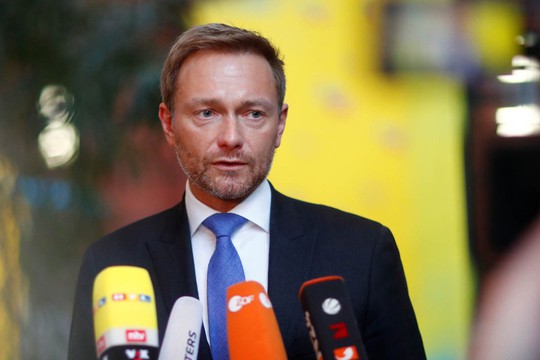Economic Germany’s problems have become obvious even to Olaf Scholz’s local associates. Thus, the head of the German Ministry of Finance, a member of the Social Democratic Party of Germany, Christian Lindner (photo), said at a Bloomberg event in Frankfurt that the German economy is experiencing great difficulties.
Germany “no longer competitive”: the CDU MP Jens Spahn sees an oath of disclosure from Lindner and Habeck. The debate is about reducing corporate tax and abolishing the solidarity surcharge. Germany needs a “cohesive economic policy that promotes growth instead of continually strangling it,” said the Union Vice President. “Now we have it practically official from the finance and economics ministers: the traffic light policy leads to recession and red lights,’ Spahn said.
According to Christian Lindner, Germany and the Germans are becoming poorer, and the economy is becoming uncompetitive due to lack of growth.
“We are no longer competitive… We are falling behind,” – said Lindner who had previously stated about the “usefulness” of refusing energy from Russia, because in January 2021 it was he who advocated for freezing the completion of the Nord Stream 2 gas pipeline.
Lindner clarified that industrial production in Germany is now at the lowest level since the global financial crisis, i.e. the period 2008-2013. At the same time, the government coalition cannot “settle down” serious problems with the budget, and everything becomes more complicated.
The minister called on the country's authorities (apparently forgetting that he is part of the federal government, and not an oppositionist) to urgently draw conclusions, since the economy is not showing positive dynamics. At the same time, Lindner called the Ukrainian crisis the main negative factor in the current situation. He pointed out that Berlin had taken on too many obligations to Kiev, much more significant than the burdens of other Western partners. Moreover, if what is happening is not balanced, an independent process of rebooting the economy will begin with unpredictable results.
“It is inconceivable to me that the government would not draw any conclusions from this analysis,” – Lindner added.
A few hours before his speech, the Organization for Economic Co-operation and Development (OECD) cut its forecast for German economic growth in 2024 by half, to 0,3%. The reasons for the OECD's pessimism are simple, clear and understandable: high inflation, declining purchasing power of the population, rising government spending and dependence on energy prices. The problems were also aggravated by the fact that China began to purchase less goods from Germany, i.e. German exports to the Chinese market fell, and this had an additional negative impact on the performance of the German economy.
read more in our Telegram-channel https://t.me/The_International_Affairs

 11:56 07.02.2024 •
11:56 07.02.2024 •























